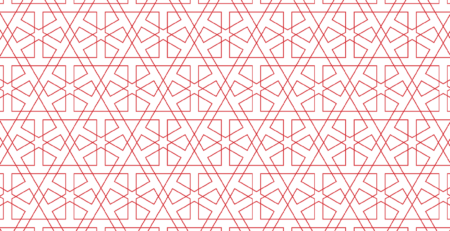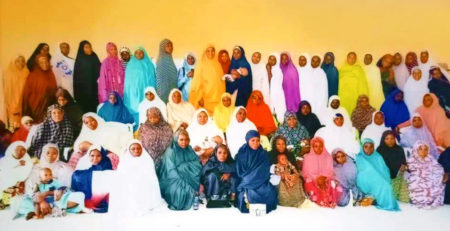The Cordoba Update 4/2017
|
The bi-weekly CORDOBA UPDATE is the product of continuous monitoring work, carried out by the Cordoba Foundation of Geneva team. By analysing and reporting on key events and trends in the Foundation’s areas of interest, we aim to draw readers’ attention to pertinent developments in North Africa, the Sahel, West Asia and Europe, which are not always covered in ‘mainstream’ media. In addition to sharing news from these four regions, the Cordoba Update is an opportunity for the Foundation to provide regular updates on its publications, events and other developments. In line with the programmes and projects funded by partners of the Cordoba Foundation of Geneva, updates and information are included under the following themes:
For questions and/or feedback regarding the content and form of the Cordoba Update, please contact Sarah Franck: sarah.franck@cordoue.ch Le CORDOBA UPDATE est un bimensuel qui présente le travail continu de suivi réalisé par l’équipe de la Fondation Cordoue de Genève. Par l’analyse des événements et tendances qui concernent les domaines d’intérêt de la Fondation, nous visons à attirer l’attention de nos lecteurs sur les développements pertinents en Afrique du Nord, dans le Sahel, en Asie de l’Ouest et en Europe, une actualité qui n’est pas toujours couverte dans les médias dits ‘traditionnels’. Outre le partage de l’actualité de ces quatre régions, le « Cordoba Update » est un moyen pour la Fondation de fournir des mises à jour régulières sur ses publications, événements et autres développements. En accord avec les programmes et projets financés par les partenaires de la Fondation Cordoue de Genève, les mises à jour et informations concernent les thèmes suivants :
Pour des questions et / ou des commentaires concernant le contenu et la forme du Cordoba Update, veuillez contacter Sarah Franck : sarah.franck@cordoue.ch |
EVENTS / ÉVÈNEMENTS
Atelier sur la religion et la violence politique
3 mars 2017 – Tunis
Le vendredi 3 mars 2017 un atelier sur la religion et le violence politique dans le contexte tunisien actuel, s’est tenu à Tunis. Cette rencontre organisée par la Fondation Cordoue de Genève (FCG) en partenariat avec le Forum El Jahedh, et le Département fédéral des affaires étrangères Suisse (DFAE), a réuni des experts pour promouvoir la coexistence pacifique entre acteurs politiques aux visions du monde divergentes. Les discussions, qui se sont tenues sous la règle de Chatham House, ont été riches et avaient pour but d’identifier un terrain d’entente sur lequel il est possible de collaborer afin de consolider la transition démocratique en Tunisie.
Cet atelier consacré au contexte tunisien émane d’une série d’ateliers dédiés à l’interaction du religieux et du politique dans la sphère publique, un processus qui a démarré en 2016. Deux rencontres se sont tenues à Istanbul et une troisième à Doha, en 2016. Un rapport de l’atelier sera mis en ligne prochainement sur le site de la Fondation Cordoue de Genève (www.cordoue.ch)
Pour plus d’informations veuillez consulter les rapports ci-dessous:
http://www.cordoue.ch/workshop-reports/item/480
http://www.cordoue.ch/workshop-reports/item/479
TRANSITION AND POLITICAL PARTICIPATION / TRANSITION ET PARTICIPATION POLITIQUE
Bahrain, 22.02.17-05.03.17: Constitutional Reforms and Violence in Bahrain
On 22 February, Bahraini lawmakers, both in the elected lower house and the appointed consultative council of the National Assembly, voted in favour of amending the nation’s constitution to allow civilians to be tried in military courts. The move has furnished Bahrain’s security forces with increased powers, in the context of a government campaign against growing dissent. The constitutional amendment follows a royal decree, which was issued in January 2017 and which restored the power of arrest to the National Security Agency. The Agency’s power was reined in during a period of government reform, following the 2011 demonstrations in Bahrain.
During the session of the elected Council of Representatives, the head of the Bahrain’s military courts, Brig. Gen. Yussef Rashid Flaifel, told representatives that the change to the constitution is a requirement for “fighting terrorism.” Indeed, Bahrain has witnessed a growing number of attacks across the island, most recently a bombing which injured four policemen, near the southern village of Jaw, on 27 February. The government has reacted with a number of arrests, including the arrest of 20 suspects between 9 and 19 February, and a further 25 suspects on 5 March. The most recent detainees are “accused of involvement in unrest” in the kingdom, including a deadly jailbreak that took place in early January 2017. According to Bahrain’s general prosecutor, the latest 25 detainees have been charged with “joining a terrorist organization” and “training on using explosives and firearms to commit terror attacks.”
Links for more information:
https://www.alaraby.co.uk/english/news/2017/2/22/bahrain-lawmakers-approve-military-trial-for-civilians
https://www.bna.bh/portal/en/news/772674
http://gulfnews.com/news/gulf/bahrain/bahrain-police-bus-hit-by-bomb-blast
https://www.bna.bh/portal/en/news/771874
https://www.bna.bh/portal/en/news/772374
https://www.bna.bh/portal/en/news/773656
http://www.middleeasteye.net/news/bahrain-arrests-25-suspects-jailbreak-investigation
https://www.middleeastmonitor.com/20170305
Egypt, 01-06 March 2017: Mubarak is free and Intelligence hires Washington lobbyists to boost Egypt’s image
According to the Washington Post, Egyptian intelligence has hired two U.S. public relations firms in Washington to lobby on the country’s behalf and boost its image, the first such engagements by the country’s powerful security apparatus to be made public and a rare move by a foreign intelligence body. Filings dated Jan. 28 and seen by The Associated Press on the Department of Justice website Sunday, 5 March 2017, showed that the General Intelligence Service has hired public relations firms Weber Shandwick and Cassidy & Associates Inc. The registrations by one of Egypt’s feared, competing intelligence agencies, known as the Mukhabarat, were released publicly to comply with the U.S. Foreign Agents Registration Act (FARA) of 1938. The contracts show that the companies will assist Egypt in promoting its “strategic partnership with the United States,” highlighting its economic development, showcasing its civil society and publicizing Egypt’s “leading role in managing regional risks” in agreements worth $1.8 million annually.
Meanwhile, the top Egyptian appeals court on Wednesday, March 1, acquitted former President Hosni Mubarak of charges of killing protesters during the country’s 2011 uprising. The ruling ends six years of a legal battle over the former ruler’s involvement in the deaths of protesters during the Arab Spring, a popular uprising that ultimately led to his ouster from government. Some 900 protesters were killed in Egypt during the revolution, though Mubarak was only implicated in the deaths of 239 in the court case. He was originally sentenced to life in prison in 2012, but an appeals court ordered a retrial. In 2014, he was cleared of all charges, before a final appeal that led to Wednesday’s ruling. Mubaraks’ clearance in 2014 sparked public outrage and mass protests. But, outside of defense lawyers, Wednesday’s ruling has so far been met with deafening silence.
Links for more information:
https://www.washingtonpost.com/business/egypts-general-intelligence-registers-washington-lobbyist
http://foreignpolicy.com/2017/03/02/former-egyptian-president-mubarak-acquitted-of-killing-arab-spring-protesters
http://www.madamasr.com/en/2017/03/03/feature/politics/mubaraks-trial-comes-to-an-underwhelming-end
Egypt, 26.02-03.03.2017, Merkel under fire for ‘uncritical engagement’ with Egypt during visit
German Chancellor Angela Merkel visited Egypt to discuss migration and development in the region. With Germany’s September election fast approaching, and the anti-immigrant Alternative for Germany (AfD) still likely to enter parliament, Merkel is facing ever-growing pressure at home to reduce the number of asylum-seekers coming to Germany. Since 2015, the country has taken in more than 1 million migrants. In response to the large number of people still making the dangerous trip across the Mediterranean Sea, Merkel’s government has already urged the Maghreb states and Egypt to step up border controls and speed up repatriations of rejected asylum-seekers.
However, she has faced criticism at home and abroad for meeting Sisi, whose government is accused of widespread human rights violations and targeting opponents from across the political spectrum. Joachim Schroedel, a German cleric who has worked in Egypt for more than two decades, expressed anger at Merkel’s assertion that Egyptian Coptic Christians were in a “very good situation,” refuting her description of Egypt as a “stabilising force in the region.” The European Council Foreign Relations in an open letter also condemned Merkel’s endorsement of Sisi’s government:
“Uncritical engagement with Egypt is not realpolitik: it is not based on a realistic assessment of the dangerous mixture of repression and non-inclusive governance that currently prevails. Germany, and Europe, should engage with Egypt as a plural and vital country, not just with its regime.”
Human Rights Watch noted that Egypt banned protests and jailed thousands of people, while outlawing the Muslim Brotherhood movement of President Mohamed Morsi whom Sisi, a former army chief, overthrew in 2013. HRW’s Judith Sunderland criticized Merkel, who visited Tunisia for similar reasons, for pursuing “dodgy deals that could trap asylum seekers and migrants from elsewhere in countries like Tunisia and Egypt that cannot guarantee decent treatment or meaningful access to asylum.”
At the press conference with Sisi, Merkel said very little about Egypt’s human rights record, except to raise the topic of Egypt’s controversial NGO law aimed at stifling civil society.
Meanwhile, Egyptian authorities have closed the offices of a prominent human rights group that helps victims of violence and torture, according to the organization and a police official quoted by the AFP news agency. El Nadeem Centre for the Rehabilitation of Victims of Violence and Torture in Cairo was shut last month. Egyptian and foreign NGOs operating in the country are governed by a strict law which allows the government to supervise their activities and finances.
Finally, dozens of Coptic Christian families from the North Sinai city of Arish are temporarily housed in a youth hostel, having fled from their homes and businesses after militants terrorized and launched a series of targeted attacks on the Coptic community, leaving seven dead in the last month. As of Sunday, Feb. 26, 70 Coptic families have fled Arish and taken refuge in Islamilia over a two-day period, according to Sureal Aziz, a priest at the Malak Church in Ismailia, who says he expects the numbers to continue to rise in the coming days.
Links for more information:
http://www.dw.com/en/chancellor-merkel-begins-visit-to-egypt-to-curb-migrant-flow
https://www.alaraby.co.uk/english/news/2017/3/3/merkel-ignores-sisis-human-rights-record
http://www.middleeasteye.net/news/merkel-criticised-whitewashing-egypt-human-rights-abuses-sisi-visit
http://www.madamasr.com/en/2017/02/26/feature/politics/anger-and-desperation-accompany-copts
http://www.aljazeera.com/news/2017/02/egypt-shuts-el-nadeem-centre-torture-victims
http://www.al-monitor.com/pulse/originals/2017/02/egypt-al-nadeem-center-rehab-torture-security
Liban, 06.03.2017 : Débats sur la loi électorale en vue des prochaines élections parlementaires
Elu en octobre dernier, le président Michel Aoun avait annoncé qu’il se ferait une priorité de revoir la loi électorale en vue des élections parlementaire prévues pour mai 2017. C’est un vieux débat qui déchire la classe politique. En effet, déjà en 2014, faute d’accord sur le mode électoral et au vu du vacuum présidentiel, le parlement avait prorogé le mandat de ses députés, ce qui fait remonter les dernières élections à 2009. Le débat actuel voit s’affronter principalement d’un côté le courant du Futur de M. Hariri et le Parti socialiste progressiste (PSP) de M. Jumblatt, partisans d’une solution hybride mêlant modes proportionnel et majoritaire, et, de l’autre, les partis chrétiens dont celui du président, le Courant patriotique libre (CPL), et les deux forces chiites, Amal et Hezbollah, qui soutiennent un scrutin proportionnel. Alors que certains observateurs affirment qu’un mode proportionnel garantirait des élections plus justes et réduirait le risque de l’achat de voix, d’autres mettent en garde contre ce qu’ils voient comme une stratégie de déstabilisation de l’Etat menée par le Hezbollah. En effet, selon ces derniers, comme un scrutin proportionnel risquerait de diminuer le nombre de députés de ce parti, son appui enthousiaste à ce mode pourrait s’expliquer par la volonté d’affaiblir les partis et chefs politiques traditionnels et ainsi porter un coup à l’accord de Taef. Du côté des partis, le courant du Futur souligne le risque qu’en cas de scrutin proportionnel, les armes du Hezbollah empêcheraient une réelle compétition dans les divisions que ce dernier parti domine. Le PSP, quant à lui, met en garde devant la marginalisation des minorités du pays, et particulièrement de la minorité druze, si le mode proportionnel devait être retenu. Ces derniers propos s’opposent directement à la position exprimée par certains membres du CPL selon laquelle, au vu du pluralisme religieux que connaît le Liban, le système proportionnel serait la meilleure loi pour assurer la représentativité de tous y compris les minorités religieuses et politiques.
Les débats continuent donc sous une pression croissante face au délai qui approche.
Liens pour plus d’informations :
http://www.france24.com/fr/20170125-liban-reforme-loi-electorale
http://www.middleeasteye.net/columns/lebanese-elections-are-circus
http://www.middleeasteye.net/columns/hezbollah-electoral-reform-and-pandora
http://www.naharnet.com/stories/en/226453-mp-aoun-rules-out-extension-elections
Tunisia, 03.03.2017: Six Years on, the Revolution is Still Underway
The standoff between the UGTT union and the government has reached a nerve-racking stage. The union of teachers is demanding the departure of Neji Jalloul, the minister of education, in retaliation for the sanctions he imposed on teachers who went on strike for three days, as well as the headmasters of schools who refused to communicate the lists of teachers concerned to the ministry. Besides, the teachers’ labour section within the UGTT accuses the ministry of plans to privatise the public sector. The new UGTT leadership, elected last January, has already made a show of force in response to Jalloul’s measures as well as PM Youssef Chahed’s sacking of Abid Briki, ex-minister of the public service ministry. Briki is a heavy-weight figure of the union. He entered the new national unity government last summer, when President Caid Essebsi tried by-pass the PF’s boycott and bring some leftist figures in the government.
Last month Chahed started talking of privatisation and lay-offs in the public sector in line with recommendations of the IMF. This triggered the anger of the UGTT, especially since pay raises there were agreed earlier were suspended. Abid Briki threatened to resign; and in order to save face, Chahed sacked him first, and announced that he would be replaced by Khalil Ghariani, head of social affairs for the Tunisian Union of Industry, Trade and Handicrafts (UTICA). For the UGTT union the decision was a humiliation that threatens large scale layoffs and privatisation of the public sector. The union let it be known that it is against the decision when Noureddine Tabboubi, leader of the union, met with Chahed, but no agreement was reached. The union threatened to call for more strikes, including in the education sector. Watching all this, UTICA backed off and Ghariani announced that he had informed Chahed that he could not accept the ministerial nomination. To save face, Chahed announced last Friday that he would abolish the public-sector portfolio, and annex it directly to his premiership duties. The standoff continues.
A number of analysts and politicians have proposed ways to mediate the crisis and save face for both parties. One initiative called for a reshuffle of the government whereby Neji Jalloul would stay in the government but be tasked to lead another portfolio. This way both the UGTT and PM Chahed would save face. It seems that Nida Tounes and Ennahdha have already reached consensus for a replacement of Jalloul. A solution would then be found for the public-sector ministry. What remains to be seen is the reaction of the Popular Front, through the labour union.
Meanwhile, in Carthage, German President Angela Merkel’s visit was marked by an agreement to send back 1500 illegal Tunisian immigrants, in return of a German investment of 250 million Euros in regional development in the country.
Links for more information:
http://kapitalis.com/tunisie/2017/03/05/neji-jalloul-sera-t-il-sacrifie
http://www.lapresse.tn/component/nationals/?task=article&id=127397
http://www.letemps.com.tn/article/101973/noureddine-tabboubi
http://nawaat.org/portail/2017/03/03/chahed-courts-the-imf-tunisian-general-labor-union
http://www.letemps.com.tn/article/101980/en-marge-de-la-visite
http://kapitalis.com/tunisie/2017/03/03/abid-briki-letat-est-incapable
RELATIONS BETWEEN COMMUNITIES OF DIFFERENT ETHNIC, CULTURAL AND RELIGIOUS AFFILIATIONS /
RELATIONS ENTRE COMMUNAUTÉS DE DIFFÉRENTES AFFILIATIONS ETHNIQUES, CULTURELLES ET RELIGIEUSES
Iraq, 20.02.17: National Reconciliation for Shaping post-IS Iraq: Initiatives at Home and Abroad
The Iraqi cleric and opposition figure Muqtada al-Sadr has announced a national reconciliation initiative, consisting of 29 points that address a wide range of issues, including reconstruction of national infrastructure, humanitarian relief, human rights and sectarianism, armed forces operations and reform, disarmament and demobilization of armed groups, political and social dialogue, education, repatriation of displaced people, expulsion of foreign forces from Iraqi territory and foreign investment.
The initiative has been met with criticism from the State of Law Coalition, which is led by former Prime Minister Nouri al-Maliki, on the basis that it internationalizes Iraqi reconstruction efforts, thereby “advancing the interests of other countries.” Al-Mowaten bloc, led by Ammar al-Hakim, dismissed al-Sadr’s initiative as falling within the framework of the National Alliance’s Historical Settlement, which was announced in late October 2016.
Despite the tepid reception by the Shi’a-majority political blocs, Sunni parties in Baghdad have apparently been more welcoming of al-Sadr’s initiative. These have included the Mutahidoun Bloc, led by Vice President Osama al-Nujaifi, and the Pan Arab Project, led by Khamis Khanjar, which did not support the Historical Settlement. According to one observer, these Sunni parties have appreciated the newest proposal for national reconciliation because of its emphasis on dialogue among religious community and tribal leaders. One suggestion from al-Sadr’s initiative is that Shi’a leaders and Sunni leaders exchange visits to their counterparts’ communities.
These developments take place in a perceptibly tense political environment, in what some are calling a competition for power between al-Hakim, al-Maliki, and al-Sadr. However, tensions are not confined to Iraq’s Shi’a political elite. A recent article of 1001 Iraqi Thoughts has outlined the complex power dynamics within the Sunni political class of Iraq, which were recently evidenced in a conference hosted by the European Institute of Peace (EIP) in Montreux, Switzerland. While the conference brought together several controversial Sunni figures, government officials and a handful of foreign notables, many other leaders from the community boycotted the event and even publically condemned it.
The power struggles between actors and political blocs of Iraq’s divided polity and society indicate a significant challenge to the initiation of a roadmap for national reconciliation by a meaningful and representative alliance. Furthermore, while the legitimacy of the Iraqi political class remains questionable – after successive corruption scandals and evidence of gross impunity – it is perhaps unlikely that the wider population will give whole-hearted support to any proposals made by mainstream political actors.
Meanwhile, a report by Amnesty International has reiterated the systematic use of torture and perpetration of war crimes by the Iraqi authorities, Popular Mobilization Units and ISIS throughout 2016.
Links for more information:
http://www.al-monitor.com/pulse/originals/2017/02/iraq-shiite-sunni-national-reconciliation
https://www.alaraby.co.uk/politics/2017/2/20/النص-الكامل-لمبادرة-الحلول-الأولية-لمقتدى-الصدر
http://www.al-monitor.com/pulse/originals/2017/03/shitte-iraq-muqtada-sadr
http://www.al-monitor.com/pulse/originals/2017/02/muqtada-sadr-iraq-reform
http://1001iraqithoughts.com/2017/02/23/the-geneva-conference-exile-sunnis-last-stand
https://www.middleeastmonitor.com/20170222
Hongrie, 07.03.17: Adoption par le parlement d’une loi réintroduisant la mise en détention systématique des migrants
Ce mardi matin 7 mars 2017, le parlement hongrois a adopté une nouvelle loi stipulant que les migrants qui arriveraient sur le sol hongrois seraient systématiquement mis en détention. Cette mesure avait déjà été introduite en 2013 mais supprimée suite aux pressions de l’Union européenne (UE) et du Haut-Commissariat des Nations Unies pour les réfugiés (UNHCR). Cette loi, adoptée par 138 voix contre 6 et 22 abstentions, préoccupe grandement les organisations humanitaires. Elle prévoit en effet le placement des migrants dans des “zones de transit” aux frontières serbe et croate et la détention de ces derniers dans des camps faits de containers, dans l’attente d’une décision définitive concernant leur demande d’asile.
Benjamin Ward, directeur adjoint de la division Europe et Asie Centrale pour Human Rights Watch (HRW), demande à la Commission européenne de réagir car selon lui par cette mesure la Hongrie se moque ouvertement du droit d’asile et de tous les rapports qui ont été écrits sur les conditions auxquelles devaient faire face les réfugiés sur le sol hongrois. Des cas d’abus par la police ont notamment été dénoncés par des réfugiés et des représentants de l’ONG Médecins Sans Frontières (MSF) dans un article du quotidien suédois Astonbladet. Des propos que le ministre hongrois de l’intérieur a « catégoriquement rejetés ».
Dans une tribune ce mardi au siège de l’ONU à Genève, la porte-parole de l’UNHCR, Cécile Pouilly, a dénoncé le fait que cette nouvelle loi violait les règles du droit international, règles que la Hongrie se doit de respecter. Elle a en outre souligné que de telles conditions de détentions auraient des impacts très sérieux, notamment sur le plan psychologique, sur des individus qui ont déjà beaucoup souffert. Cette obligation de détention vise en outre tous les demandeurs d’asile, c’est-à-dire des hommes, des femmes mais aussi de nombreux enfants. Des enfants qui jamais ne devraient être détenus dans de telles conditions, conclue-t-elle.
Liens pour plus d’informations :
http://tempsreel.nouvelobs.com/en-direct/a-chaud/34263-migrants-hongrie-hongrie-adopte-detention-systematique
http://www.independent.co.uk/news/world/europe/hungary-parliament-asylum-seekers-detain
http://www.unhcr.org/news/briefing/2017/3/58be80454/unhcr-deeply-concerned-hungary-plans
http://hungarytoday.hu/news/hungary-rebuffs-swedish-press-allegation-police-brutality-asylum-seekers
http://www.aftonbladet.se/nyheter/a/noLbn/flyktingarna-den-ungerska-polisen-misshandlar-och-torterar-oss
VIOLENT EXTREMISM AND THE WAR ON TERROR / EXTRÉMISME VIOLENT ET LA GUERRE CONTRE LA TERREUR
USA, 03.03.2017: What do jihadists think of Donald Trump?
Amarnath Amarasingam, senior research fellow at the Institute for Strategic Dialogue, Canada, asks “what do jihadists think of Donald Trump?” He said, it’s an important question to explore and pose to jihadists themselves, because it influences their propaganda and their stance toward the United States, and may predict how they behave in relation to Western states. After Trump’s election victory, he asked five fighters for their thoughts on Trump. Initially, they weren’t convinced that Trump would be different from any other American president, who, since 9/11, has been, according to them, bombing Muslims and killing civilians. But then Trump spoke, put forth executive orders and seemed to fan the flames of the far right.
He added, as time went on, these jihadists began to argue that Trump represents “real” America. Trump was saying what Americans and politicians always privately thought about Muslims but were too afraid to say in public. In their eyes, Presidents Barack Obama, Bill Clinton and George W. Bush tried to fool American Muslims by insisting, deceptively, that there was a separation between “Islam” and “terrorism,” that the war on terror was only targeting terrorists, not Muslims.
Trump, according to Amarasingam’s interviews with ISIS- and Al Qaeda-linked fighters in Syria and Iraq, is more honest and is not scared to say what Americans really think. “I mean, with no hidden agendas or behind-the-scenes plots,” the same ISIS fighter said. “He is clear and everyone, even the kuffar [infidels], know that he hates Muslims.” In a country with police shootings, racial tensions and war fatigue, a president who some fear may crack down on civil liberties, further marginalize minorities and turn America inward is, from the jihadist point of view, what they wanted all along.
Meanwhile, President Donald Trump’s new national security adviser, Lt. Gen. H.R. McMaster, advised him in a closed-door meeting last week to stop using a phrase that was a frequent refrain during the campaign: “radical Islamic terrorism.” In his first remarks to the National Security Council, McMaster told his new staff he considered the term “radical Islamic terrorism” unhelpful, according to a second White House aide. “Even a small change like referring to ‘radical Islamist terrorism’ would be an improvement, in his view,” said this aide. “Islamist” typically describes fundamentalist supporters of Islam-based government and society, rather than implicitly encompassing all Muslims.
In recent years the phrase “radical Islamic terrorism” has become a rallying cry for conservatives who believe Islam is inherently at odds with Western liberal values. President Barack Obama, following the example of President George W. Bush before him, pointedly avoided saying it—citing expert opinion that the wording risks alienating moderate Muslims who hear it as an indictment of their religion. Obama preferred the phrase “violent extremism,” which makes no reference to any specific religion.
McMaster expressed “great disdain” for that approach, according to a senior National Security Council official. “He understands that pretending that it’s not something within Islam that’s causing this—you can’t pretend that, but you can enlist the people within Islam who agree with you,” said the official.
Links for more information:
http://www.politico.com/magazine/story/2017/03/what-isis-fighters-think-of-trump
http://www.politico.com/story/2017/02/mcmaster-trump-terrorism-speech
The views and perspectives contained in the Weekly Update are from individual contributors and external sources, and do not necessarily reflect the opinions or position of the Cordoba Foundation of Geneva. The links are neither intended as an endorsement of particular publications nor the only source for the updates, but to connect to information in the public domain, for those interested in background or further details.












